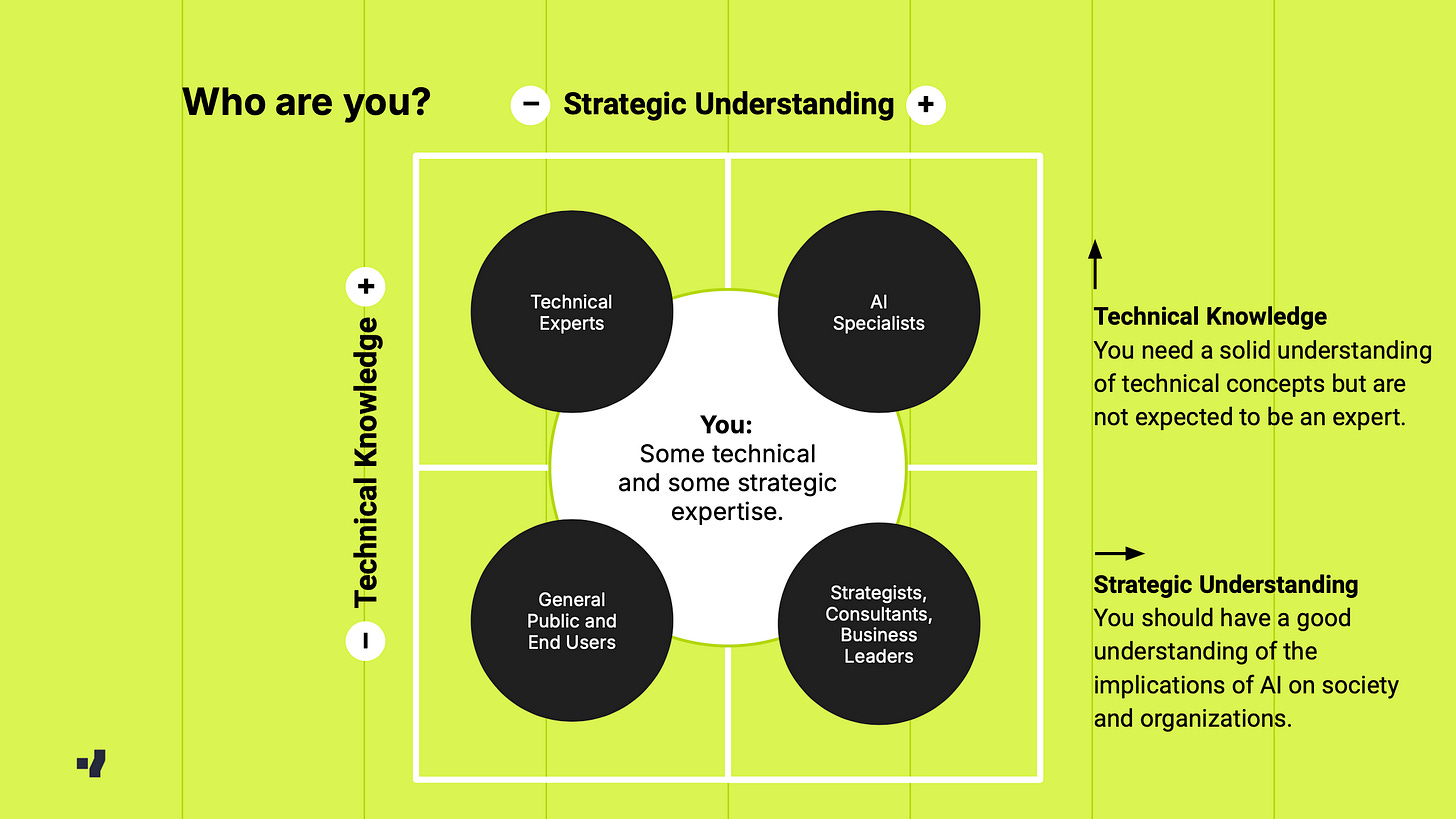Emotional Model Collapse (064)
Good news before the bubble bursts.
Happy Monday and welcome to your weekly dose of opinionated insights about AI.
Like so many of us, I have been exploring different approaches for both learning and applying cutting-edge AI practices in all aspects of my life. One example is a Masterclass that I’ve been tinkering with a while, containing what I think are foundational skills to understand the current moment in time and probable future trajectories.
The hardest thing about designing learning material for such a broad & fast-moving field is living up to the promise of delivering the right level of insight to the right audience (at the right time). Everyone has a different level of familiarity, interest and needs when it comes to learning about AI, so striking that balance seems key.
To help me frame the question better, I use the slide below in the presentation. The ideal audience has some degree of technical knowledge as well as strategic understanding about the field, and ideally some skin in the game as well. People who are experimenting and stand to gain something from succeeding with these skills.
If this is you, perfect. We soon launching and scaling up this learning material. You will obviously be the first to find out when the Masterclass starts going live later this year.
Until next week,
MZ
Adaptable Agents (12 min)
Excellent primer by IBM, a didactic explainer by Maya Murad exploring the evolution of AI agents and their importance in future systems. Love the writing-on-board approach.
Shapeshifting Machines
Brilliant short presentation by Silicon Jungle outlining the many ways AI systems are fundamentally unlike previous technologies and how difficult it will be to wrap our heads around their capabilities. Don’t miss the article below.
Friend in Need
Maybe I’m showing my age, but I can’t think of a single reason to develop a friendship with an AI. Avi Schiffman thinks otherwise and is betting a $99 necklace with a microphone and accompanying smartphone app to receive “messages” from your AI, might help combat the loneliness crisis. IDK. Interesting take on X.
Losing Sales
Using "AI" in product descriptions reduces purchase intentions.
When AI is mentioned, it tends to lower emotional trust, which in turn decreases purchase intentions,” he said. “We found emotional trust plays a critical role in how consumers perceive AI-powered products.
Compressing LLMs
Making AI models smallers through training is called quantization. This visual guide by Maarten Grootendorst does an excellent job representing the mechanisms and techniques used to solve the “problem” of Large Language Models.
Gods of Logic (25 min)
If you are looking for a long, sweeping and profound essay about the changes AI might cause, The Gods of Logic by Benjamín Labatut in Harper's Magazine might satisfy. Beautiful generative artwork by Phillip Toledano, too.
Riding the Hype Cycle
If Artificial Insights makes sense to you, please help us out by:
📧 Subscribing to the weekly newsletter on Substack.
💬 Joining our WhatsApp group.
📥 Following the weekly newsletter on LinkedIn.
🦄 Sharing the newsletter on your socials.
Artificial Insights is written by Michell Zappa, CEO and founder of Envisioning, a technology research institute.
You are receiving this newsletter because you signed up on envisioning.io or Substack.










